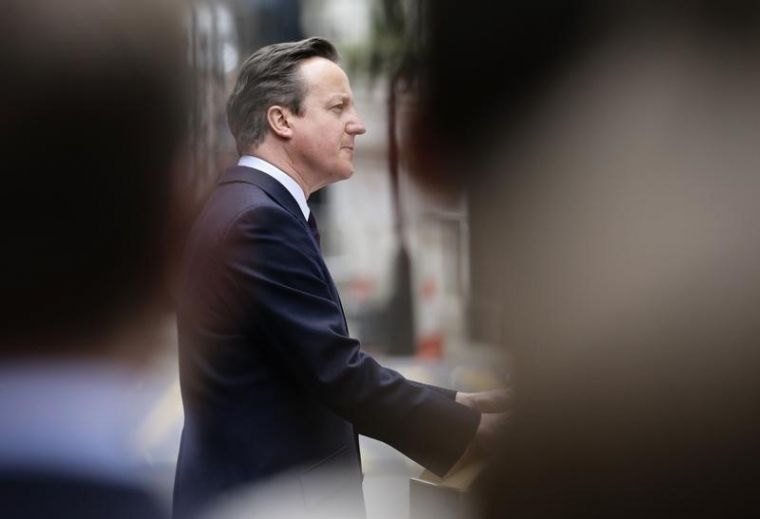Victorious Cameron to name new cabinet, brief party on EU

Buoyed by a surprisingly clear-cut election victory, Prime Minister David Cameron will name his new cabinet on Monday and meet Conservative lawmakers keen to hear how he plans to claw back more powers from the European Union.
Cameron won an outright majority in Thursday's parliamentary election with 12 seats more than all the other parties combined, freeing him to ditch his previous Liberal Democrat coalition partners and govern alone.
He has promised to renegotiate the country's relationship with the EU and then call a referendum by 2017 on whether to stay or leave, a decision with far-reaching implications for trade, investment and Britain's place in the world.
But he faces a strong contingent of doubters within his own party who loathe what they see as the dead hand of Brussels bureaucracy.
The last Conservative Prime Minister to govern with a small majority - albeit larger than Cameron's - was John Major, whose premiership two decades ago was fatally undermined by 'eurosceptics' within his own party.
So four days after winning re-election, Cameron can expect a rousing reception from the so-called 1922 Committee of Conservative members of parliament, but will know from Major's example that the honeymoon may not last.
"A Conservative party that yearns for less meddling EU government will be urging the prime minister on to the full restoration of home rule," leading eurosceptic John Redwood wrote in the Observer newspaper. "There is no disagreement about the aim, but the prime minister has to avoid disappointment about how much has been achieved to further it."
Also on the agenda will be Cameron's blueprint for eliminating Britain's budget deficit. Having halved it to around 5 per cent of gross domestic product since 2010, he has promised another £30 billion of "consolidation" in the next two years including £12 billion of savings from the welfare budget, but has not spelt out how this will be achieved.
A Downing Street spokesman said Cameron would reappoint former party leader Iain Duncan Smith as work and pensions secretary in charge of welfare reforms, which opponents call draconian but which the government says are necessary to make working more attractive than receiving state handouts.
The spokesman declined to comment on a Sky News report that rising party star Sajid Javid, a former banker, would be promoted from culture minister to business secretary in the new cabinet, which is also expected to feature more women.
Opposition Labour MPs will also meet for the first time since the election, in which they were beaten by the Conservatives in England and thrashed by Scottish nationalists in their traditional stronghold north of the border.
Labour health spokeswoman Liz Kendall was first to declare herself a candidate to take over as leader from Ed Miliband, who quit the day after the election. Former soldier Dan Jarvis has ruled himself out.
Senior Labour figures have said the party must return to the political centre ground and respond to the aspirations of millions of voters it ignored in its election campaign.











